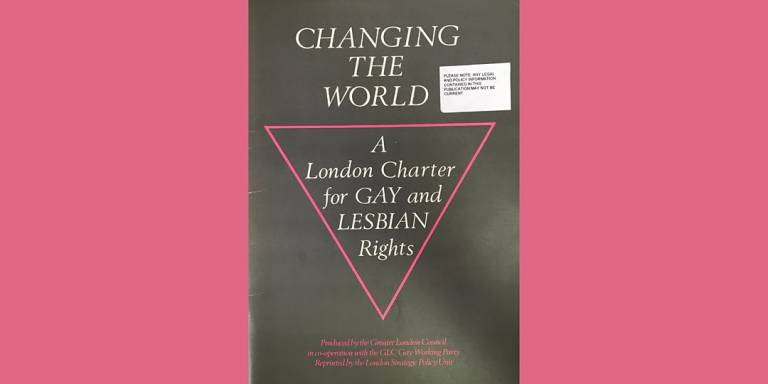VIRTUAL LUNCH HOUR LECTURE: London’s Queer Infrastructure
18 December 2020
How have movements for LGBTQ+ rights and equality connected with the governance of cities? This UCL East Lunch Hour Lecture will explore this question and more.

How have movements for LGBTQ+ rights and equality connected with the governance of cities? How do these populations, and the venues and neighbourhoods they identify with, feature in urban planning and development? Why do mayors march in Pride parades?
Ben Campkin, Professor of the History and Theory of Architecture and Urbanism at UCL's Bartlett Faculty of the Built Environment, will explore these questions in his talk on 27 April at 1pm.
He will look at the case of London through the scholarship on gay movements, urban change and ‘queer space’ that has developed internationally across numerous disciplines over the past 60 years.
Ben will use case studies, such as the Greater London Council-funded London Lesbian and Gay Centre of the 1980s, and local and central London Pride parades in the present, to show how these produce an adaptive ‘queer infrastructure’ that shifts according to the changing frontiers in the politics of gender and sexuality, generational priorities, and the socio-economic drivers for diversity in institutions.
The Coronavirus pandemic has intensified threats to the survival of cultural venues, especially independent ones and night-time scenes. With this in mind, the lecture will highlight how radical queer spaces, and the practices of urbanism and culture they foster, facilitate utopian imagination, helping to confront local and global challenges, and creating affirmative places for exchange across political and social divides.
Speaker: Professor Ben Campkin
Ben Campkin is Professor of the History and Theory of Architecture and Urbanism in The Bartlett School of Architecture and Co-Director of UCL’s transdisciplinary Urban Laboratory.
Ben has been researching urban change for two decades and is the author of Remaking London: Decline and Regeneration in Urban Culture (2013), a history of regeneration from the 1920s to the Olympics, which won the 2015 Jane Jacobs Urban Communication Foundation prize.
He is currently completing a monograph, Queer Premises (Zed/Bloomsbury), on LGBTQ+ venues in London, from the 1980s to the present. On this theme, recent activities have included co-editing Sexuality and Gender at Home (Bloomsbury, 2017), co-authoring LGBTQ+ Cultural Infrastructure in London (2017), a report that has had wide influence on mayoral and planning policies, co-curating Whitechapel Art Gallery’s archival exhibition, Queer Spaces, London: 1980s–Today; and leading the UK project within the Humanities in the European Research Area EU research collaboration, Night-spaces, Migration, Culture and Integration in Europe.
 Close
Close

